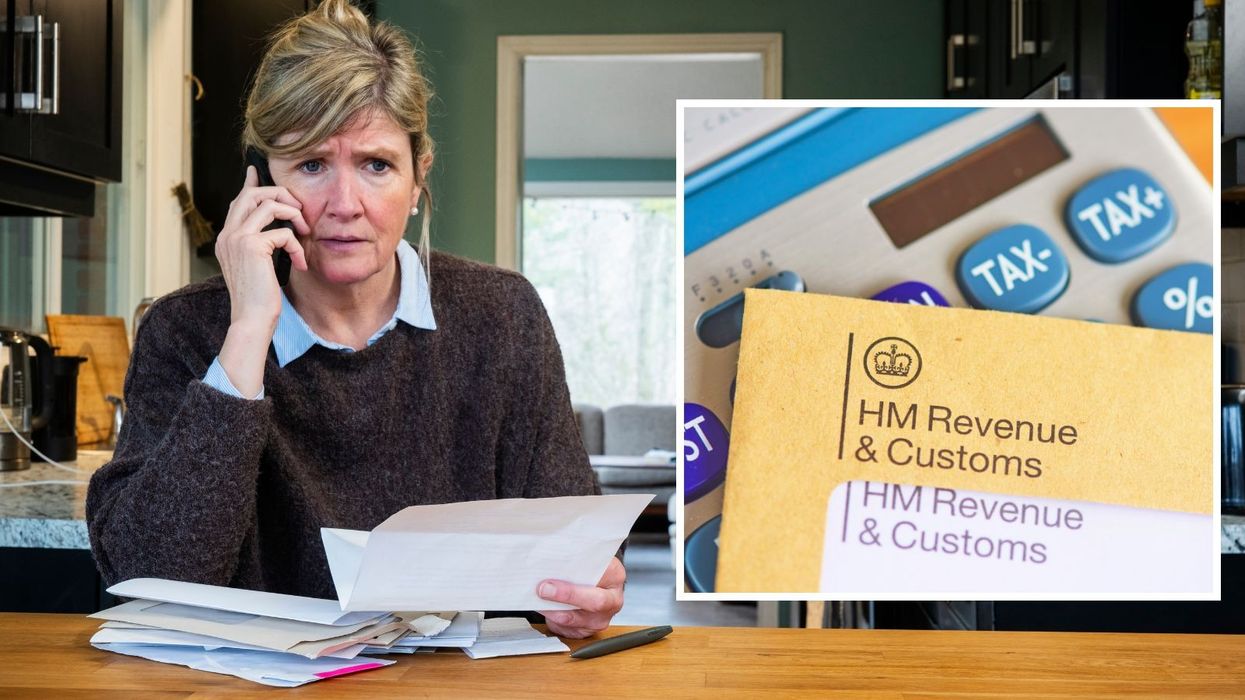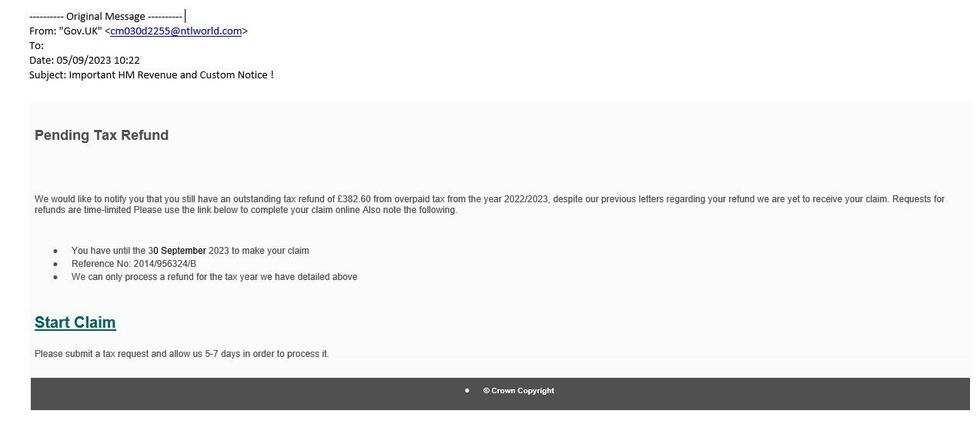Britons warned of 'most popular approach' to drain your bank account this summer as scammers target workers


The warning comes from Which? who found the impersonation scam to be targeting vulnerable people
Don't Miss
Most Read
Latest
Britons are warned of a growing scam which could drain their bank accounts.
A fake HMRC email is making the rounds as some people are getting their tax rebates.
Consumer group Which? is alerting Britons to the latest scams which include this HMRC tax rebate email.
An email is circulating which is telling individuals that they're eligible for a tax refund - but Britons are warned "this is a scam impersonating HMRC".
The email includes a 'UK Gateway' logo and a link to a malicious website which will ask for one's personal and financial information.
If these scammers get a hold of one's personal and financial information, they use this to access and open bank accounts in one's name, and obtain credit cards, loans and state benefits.
 HMRC is urging members of the public to watch out for fake tax refund scam emails | HMRC
HMRC is urging members of the public to watch out for fake tax refund scam emails | HMRCThe hackers could potentially drain victim's bank accounts, leaving their personal finances in turmoil.
The email states: "You are entitled to a tax refund of £XXX for the tax year 2023-2023. This amount is due to you immediately.
"Please click the button below to complete the necessary form with your updated details. Prompt attention is required to facilitate your refund.
"Please have your identification ready to verify your identification and process your Rebate. This email was sent from a notification-only-address, which does not accept incoming emails. Do not respond to this communication."
Impersonation tax rebate or refund scams have become "one of the most popular approaches" to entice people to provide their bank account details.
How to identify a scam
The first thing Britons should do if they receive a HMRC tax rebate email is to check the sender’s address. At first glance, it might look similar to a genuine HMRC tax refund email address, for example: taxrefunds@hmrc.co.uk but HMRC addresses always end @hmrc.gov.uk.
However, fraudsters can mask their sending address and make it look like the email comes from a real @hmrc.gov.uk address so another way to check is on the Government website as they have a list of genuine HMRC contacts. For scam phone calls, Britons are urged to fill out an online form, or for weird text messages, they can forward them to 60599.
Stevie Heafford, Tax Partner at HW Fisher explained that people should double-check a tax rebate email is legitimate by either calling HMRC, logging onto their personal Government Gateway account or their HMRC mobile app.
A HMRC tax rebate scam email often asks for personal information such as one's full name, address, date of birth, bank and credit card details – including passwords and their mother’s maiden name.
If people provide the information, Which? warns money can be stolen from your bank account and your details could be sold on to criminal gangs.
But HMRC will never ask for someone's bank account details via text or email "so don’t respond," they stressed.
After reporting a scam email, HMRC says people should never engage and should delete it. Britons can report scam emails by forwarding them to report@phishing.gov.uk, and websites can be reported to the National Cyber Security Centre.
The scam warning follows reports of many workers receiving legitimate tax refunds.
Some Britons may find they are actually due a tax rebate if they have paid too much Income Tax. This can happen from using the wrong tax code, changing jobs during the tax year, changes to pension contributions, or if someone has received government allowances such as Jobseeker’s Allowance, or Employment and Support Allowance.
Heafford continued: "If you have paid too much tax, you should receive a P800 letter from HMRC that will outline how much you are owed and how to claim a refund.
"It might not always be good news - you could also receive a Simple Assessment letter if you have underpaid your taxes and need to make a payment.
"You will only get a letter if you are employed or if you receive a pension, and they are typically received between June and November.
"If you have paid too much tax, it is quick and easy to claim it back. Once you have logged into your online Government Gateway account and completed all the necessary steps, the money should be in your account within five working days. You can also claim a refund through HMRC’s mobile app."
Heafford concluded: "Check your tax records and expenses if you think you might be eligible for a refund. You can do this by logging on to your personal tax account on the HMRC website, or by contacting HMRC directly. Claims can be made up to four tax years. In more complicated cases, seeking professional advice from an accountant could be useful."
"Remember that HMRC will never contact you about a tax rebate via text message or email. Sadly HMRC-related scams are becoming increasingly common, where fraudsters impersonate HMRC and contact individuals to say that they are owed money.
"They will then invite people to share their payment details so that they can receive their ‘refund’ when in reality their funds have become seriously at risk of being stolen."










